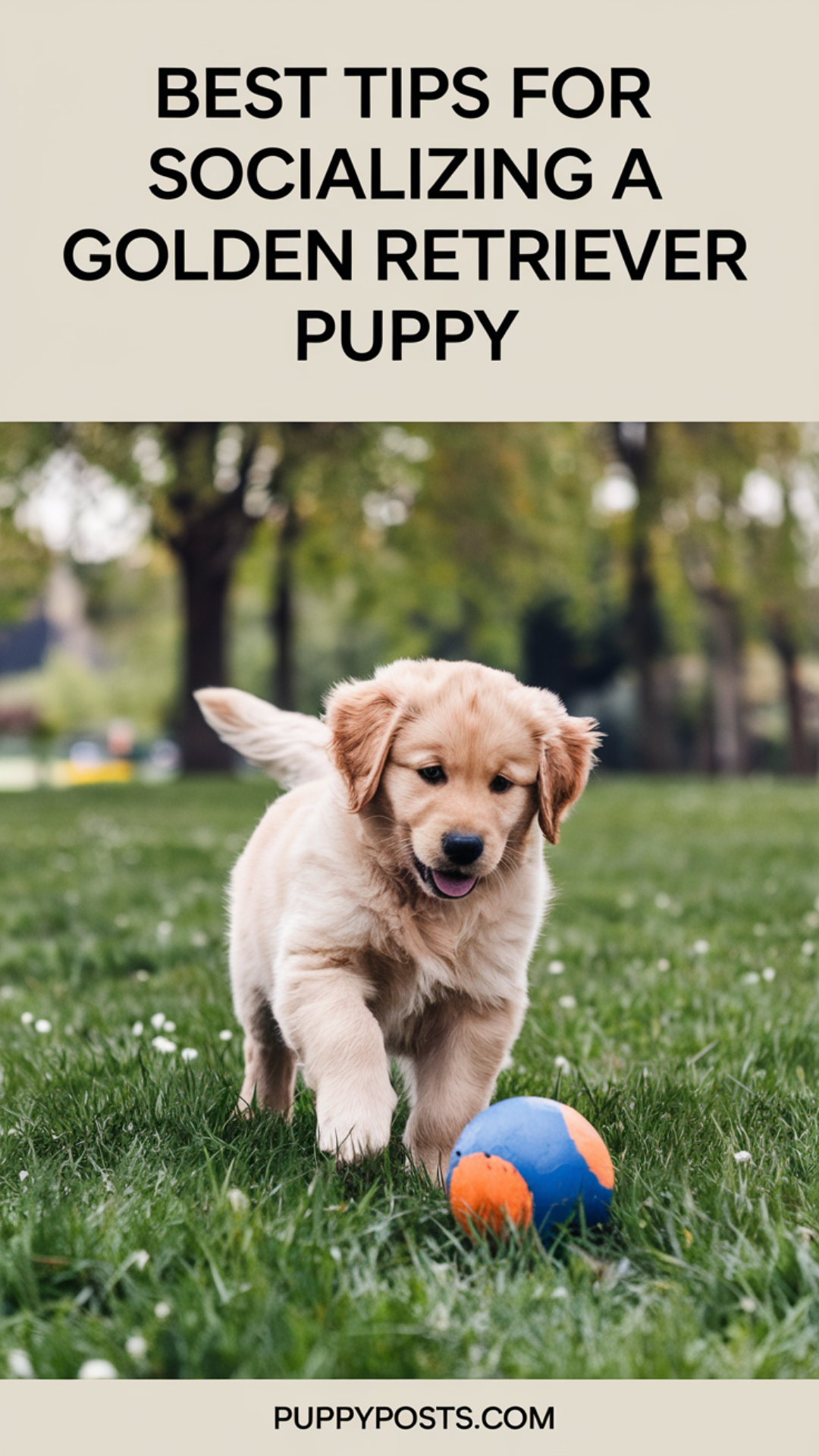Best Tips For Socializing A Golden Retriever Puppy
Golden Retrievers are friendly, affectionate, and eager to please—but don’t assume that means they’ll automatically be well-socialized. Like any dog, they need proper exposure to new people, places, and situations to grow into confident, well-mannered adults. Miss this critical window, and you could end up with a nervous, overly excitable, or even fearful dog.
As a veterinarian with ten years of experience and someone who runs a sanctuary for strays, I’ve seen what happens when socialization gets overlooked. A Golden Retriever that wasn’t properly introduced to the world as a puppy can end up anxious, reactive, or impossible to control in new situations. You don’t want that.
So, let’s get into the best tips for socializing your Golden Retriever puppy the right way.

1. Start Early—The Socialization Window Closes Fast
The best time to socialize your Golden Retriever puppy is between 8 to 16 weeks old. This is when they’re most open to new experiences. After this window, they start becoming more cautious of unfamiliar things.
👉 Tip: Don’t wait. Start socialization as soon as you bring your puppy home, and keep it consistent.
2. Introduce Them to Different People—All Kinds
Golden Retrievers love people, but they still need to be introduced to all types of individuals. Your puppy should meet:
- Kids (because they move fast and make noise)
- Seniors (because they walk differently and may use canes or wheelchairs)
- Men and women of different heights, builds, and voices
- People in hats, sunglasses, and bulky clothing
👉 Tip: Give treats and praise when your puppy meets someone new. Make every interaction positive.
3. Expose Them to Various Environments
A dog that only knows the inside of your home will struggle when faced with the real world. Get your Golden Retriever puppy out and about:
- Walk on different surfaces (grass, pavement, sand, stairs)
- Visit pet-friendly stores
- Take them on car rides
- Let them hear traffic, sirens, and construction noises
👉 Tip: Keep these experiences short and positive. If your puppy seems overwhelmed, take a step back and try again later.
4. Socialize With Other Dogs—But Choose Wisely
Not every dog is a good match for a young puppy. The wrong interaction—like getting bullied by an aggressive dog—can leave a lasting negative impression.
- Start with calm, well-mannered dogs (friends’ or family’s dogs you trust).
- Enroll in puppy socialization classes—these are controlled and supervised.
- Avoid dog parks too early—you don’t want your puppy picking up bad habits or getting overwhelmed.
👉 Tip: Watch body language. If your puppy seems scared, don’t force interactions.
5. Get Them Used to Being Handled
Golden Retrievers will need vet visits, grooming, and plenty of handling throughout their lives. Make sure they’re comfortable with it early on.
- Touch their paws, ears, and mouth regularly.
- Get them used to brushing and nail trims.
- Have different people gently handle them so they don’t fear strangers touching them.
👉 Tip: Always pair handling with treats and praise to make it a good experience.
6. Introduce Common Household Sounds
Your puppy shouldn’t be startled by everyday noises. Introduce them to:
- Vacuum cleaners, blenders, and hairdryers
- Doorbells and knocking
- TV, music, and loud conversations
👉 Tip: Play these sounds at a low volume first, then gradually increase as they get used to them.
7. Teach Calm Behavior During Socialization
Socialization isn’t just about exposure—it’s about teaching your Golden Retriever how to behave in new situations.
- If they jump on people, teach “sit” instead.
- If they get overly excited, reward calm behavior.
- Don’t let them pull on the leash—start loose-leash training early.
👉 Tip: Reward calm interactions, not overexcited or anxious ones.
8. Make Every Experience Positive
This is the most important rule of socialization. Every new experience should end on a good note.
- Give treats, praise, or playtime after each new introduction.
- If your puppy seems scared, don’t force it—let them approach at their own pace.
- Never punish fear. It’ll only make things worse.
👉 Tip: The goal is to build confidence, not overwhelm your puppy.
Final Thoughts
Golden Retrievers are naturally social dogs, but that doesn’t mean socialization happens automatically. You have to put in the work early on to ensure they grow into well-adjusted, confident adults.
Start before 16 weeks, expose them to new people, places, and experiences, and always keep it positive. If you do it right, you’ll have a well-mannered, friendly Golden Retriever that can handle anything life throws at them.
Put in the effort now, and you’ll thank yourself later.







